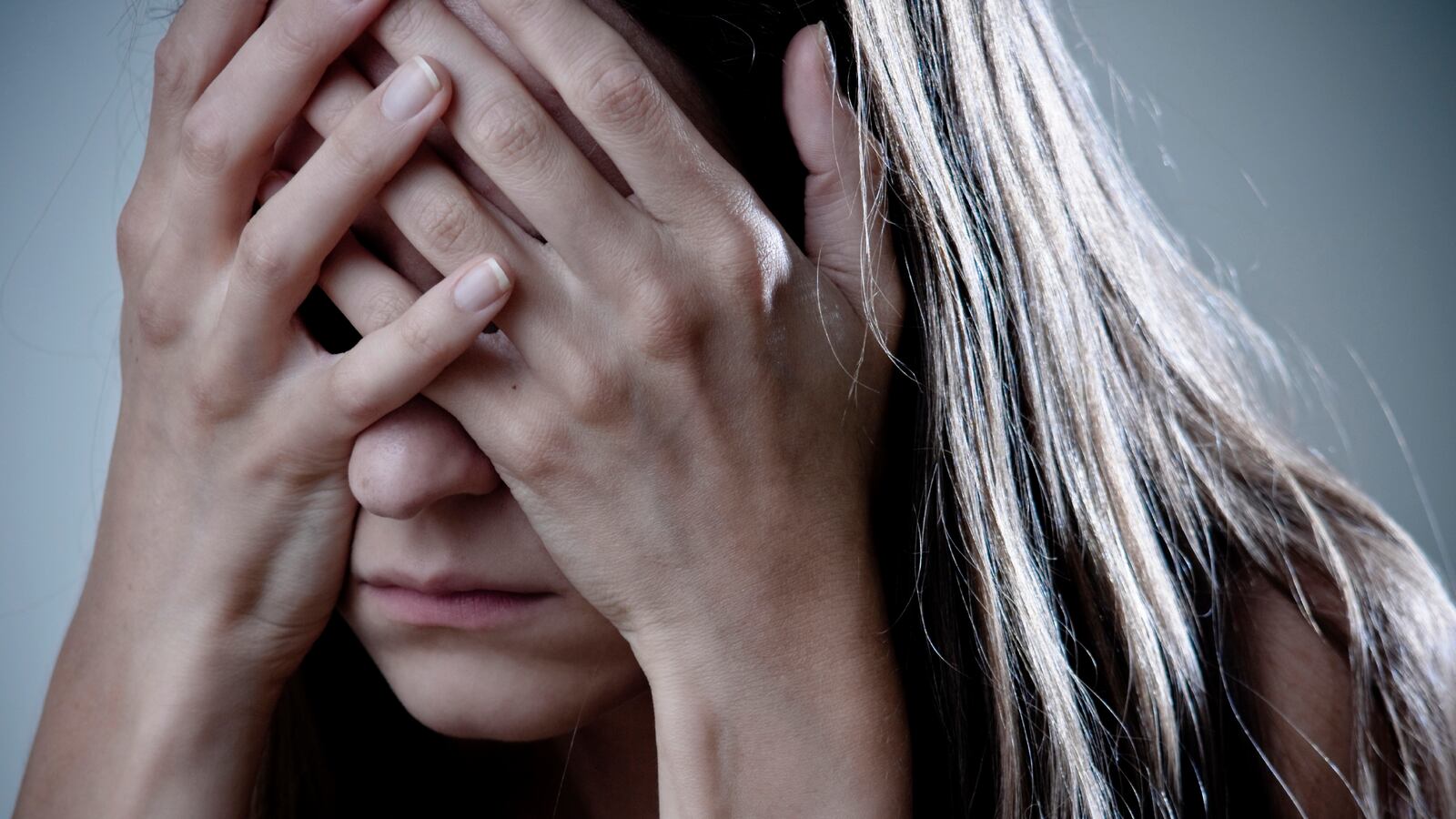This past weekend, Lady Gaga used her Oscar performance limelight to strike a chord of courage and accountability around the world. She stood alongside fellow survivors of sexual assault, publically facing whatever societal stigmas would be waiting on the other end of the broadcast. Gaga shared via Instagram that getting to the stage for rehearsal was harrowing; her body nearly failed her over the pending performance as she felt “the fear of knowing I would finally face that I belonged in that group.”
The performance was introduced by Vice President Biden, who urged the public to be accountable with the White House’s “It’s On Us” initiative. It aired hot on the heels of a letdown court decision to keep Kesha in contract with music producer Dr. Luke and Sony amid sexual assault allegations.
The public is once again talking about rape and taking sides. Cosby. Savile. Berru. It is the very small indication of pressure on the floodgate built of society’s pre-conceived notions around rape.
The entertainment industry seems to be center stage at the moment. One accusation nearly always triggers a waterfall effect, and questions always arise and are directed at the victim—mainly around issues of truth and timing. Any public accusation made after the fact seems suspect, despite the insurmountable odds facing any accusation. Ulterior motives—money, fame, publicity—are always speculated.
It took me five years to admit I was the victim of rape. It’s been another six building the courage to speak publically about it. The burden I carried those first five nearly killed me. The last six have been a long road of healing.
I speak as a survivor in saying that all of us are to blame in this cycle of silence and shame. We are as a society, collectively and to an extent unassumingly, the biggest barrier to a victim reporting rape.
Television tells us that we’re a culture of activists and advocates. With each marathon-screened episode of Law and Order: SVU, we become armchair anthropologists, addressing the issues and campaigning for social justice, one binge-watched episode at a time.
But these TV shows, with back-alleyway hoodies and armed attackers and systematic, serial home invaders, do not deal with the biggest facts and figures. One in six women in the United States will become a victim of sexual assault in her lifetime. Eighty percent of those rape victims will know their assailant—which leads to 20 percent, the number of assaults that will ever be reported in light of the massive societal barriers preventing victims from speaking out against a familiar face.
The problem is rampant, and the face of it is not one society is willing and ready to deal with. It is a face you know. It may be a face you love or trust. It was for me, and it kept me from telling anyone, myself included, for six years. The doubt still creeps in 11 years later, trying to reconcile the person I knew with someone capable of his own calculated, forceful, and vile actions. And if I couldn’t believe it, why would anyone else?
It is human nature to want to think the best of people we know, and for those 80 percent of victims, makes the term “acquaintance rape” unbearable. Confusion. Misread flirtation. Animal attraction. Alcohol. Our culture teaches the victims to place blame on themselves—anywhere but on that familiar face that took their power and choice to consent.
No one wants to talk about rape. Not your best friend. Not your boyfriend. It is too horrific a topic to wrap our brains around, and most people simply shut off if you begin to share your story. Then the questions and the doubt are near immediate: Did you say no? Did you fight back? How did it still happen? Did you fight hard enough? Were you flirting? Were you drinking? Did you scream? Did you cry? Did you go to the police?
With each question comes a whole new wave of self-doubt. Did I fight hard enough? Why didn’t I scream? Were my “no’s” loud and many enough? Did he see my tears? Did I lead him on?
The questions a survivor is asked all have one thing in common: What did you do wrong that let this happen?
These questions, though deeply upsetting and often triggering of re-victimization, guilt, and trauma, are not coming from a place of malice or bad-heartedness. They are coming from disbelief. They are coming from the Netflix binge that tells us, if victims are innocent and assailants are guilty, then the circumstances must be filled with weapons, force, insurmountable fear, theatrics, and a lineup of sinister-looking strangers. No one wants to wrap their brain around a known assailant.
Once I opened up to a very select few about my assault, many years and a distance of continents after the fact, I kept his name out of it for the many people we knew in common, out of fear that they would never be able to comprehend how the person they knew could be a rapist.
When I finally told a guy I was dating who it was, I painstakingly tried to prep him, telling him time and time again that he knew my rapist, and he really didn’t want to know which him that was. Weeks later I broke. I didn’t know whether to expect shock and rage or utter disbelief and doubt. What I got was even more horrifying.
Five more women’s names. There were five more names that my then-boyfriend listed—other victims he’d heard about, victims of the rapist I had defended in my own head. For six years I had endlessly doubted, questioned, and hated myself for what had happened—only to hate myself even more, because when I had finally came clean, I had told myself that my decision not to speak up only held my own fate. What if any of them were after me? What if my silence had somehow sealed their fates too?
It’s been five years since that conversation, and I like to think I’ve mostly forgiven myself for not speaking up sooner, though some days those other freshman faces creep into my mind. I know it wasn’t my choice when to tell. Just like it wasn’t my choice to become a victim of rape, 18 years young, shy and self-conscious, a virgin.
My rapist made choices and took choices from me that have changed my life forever. There is no normal; there is only new normal. I am no longer a victim, but I will always be a survivor.
As a culture, I find us guilty of not making the choices to end the epidemic of sexual violence. Every rape joke and unaddressed accusation soon forgotten sets us further and further behind, keeping the muzzle strapped tight.
While we can seem to forget and forgive our athletes, actors, stars, and peers, I assure you, a victim never forgets the moment they realized they had no choice left, that “no” was not enough, that help was not coming, and that their trust placed in humanity was untrue. It is an arm pinning my chest to the bed, silent sobs of “stop,” the tulle of my dress chaffing my thigh, trying to clean the blood and disappear out the back door and out of my own life every single time I was forced to see him after that night.
We are a society of skeptics and non-believers towards the victims who have been stripped of everything and need us most to believe them, to support them, and to take a stand for them. Maybe it just starts with a statement to break down the walls of guilt, confusion, and fear that are still keeping victims silent and shamed.
My name is Sarah Bertness, and I am a survivor of rape. I am sharing my story in hopes that those who need to can do the same, and that someday if we all speak up and take a stand, others will not have to.






